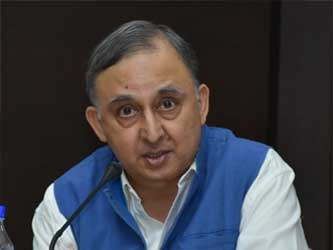New Delhi [India], January 17: Following Iran’s strikes on a terrorist group in Balochistan, several foreign affairs and defence experts have termed Pakistan’s age-old policy of supporting terrorists on their soil as the reason behind the attack and said that it was a “much needed” message for Islamabad.
Foreign Affairs Expert Tilak Devasher, pointed out how multiple neighbours of Pakistan have been accusing Islamabad of harbouring terrorists on their soil.
“Pakistan has been sending terrorists into India. Afghanistan has accused Pakistan of supporting the Taliban for 20 years and now Iran and Chinese are not very happy with Pakistan. Pakistan is the one country where all the neighbours are upset with its support for terrorist causes,” Devasher said.
He added, “What can be a better proof of being a terrorist? Iran says that it fired missiles and Pakistan couldn’t detect them. They couldn’t detect at the time of Balakot, they couldn’t detect at the time of Osama bin Laden. And you wonder what kind of defence system and mechanisms they have.”
Earlier, Iran attacked the headquarters of a terrorist group opposed to Tehran with drones and missiles in Pakistan on late hours of Tuesday.
Two “important headquarters” of Jaish al-Adl (Army of Justice) in Pakistan were “destroyed”. The strikes were concentrated in an area in Pakistan’s Balochistan where “one of the largest headquarters” of Jaish al-Adl was located, the report said.
Speaking on the issue, Defence Expert RK Singh said that the current situation is a result of Pakistan’s age-old policies of supporting terrorists on their soil.
“Pakistan has always been supporting terrorists from its land. This was bound to happen. If you support terrorist groups in your soil, sooner or later, it is going to strike you back. There have been claims that this terrorist outfit in Pakistan has struck the interest of Iran in Iranian soil. So, this is in retaliation that Iran has struck deep into Balochistan and hit only the specific targets of terrorist organisations,” Singh said.
He added, “It’s good that Pakistan, for the first time, accepted that there was a missile strike. But Pakistan has been aiding, abating and supporting terrorists on its soil, so now they should not cry foul. What they are going through is because of their policies.”
Squadron leader Subodh Dixit (retired) compared the air strikes carried out by Iran to that carried out at Balakot by the Indian Air Force in 2019 following the deadly terror attack in Pulwama.
“Iran carried out airstrikes 50 km inside its borders. The strikes were targeted against the terrorist organisation Jaish al-Adl. This is very similar to the airstrike carried out by the Indian Air Force in 2019. The world knows that Pakistan is the country that is fueling extremism across the world. Every terror attack has some or another link with Pakistan. This strike is a strong message to Pakistan,” he said.
Following the attacks, Pakistan strongly condemned the “unprovoked violation” of its airspace by Iran. It alleged that the strikes claimed the lives of two children and injured three girls.
Pakistan’s Ministry of Foreign Affairs said that the violation of Pakistan’s sovereignty is “completely unacceptable” and warned of serious consequences. It further said that Iran has taken this action despite the existence of several channels of communication between the two nations.
Formed in 2012, Jaish al-Adl, designated as a “terrorist” organisation by Iran, is a Sunni terrorist group that operates in Iran’s southeastern province of Sistan-Baluchistan.
Over the years, Jaish al-Adl has launched numerous attacks on Iranian security forces. In December, Jaish al-Adl took responsibility for an attack on a police station in Sistan-Balochistan that claimed the lives of at least 11 police personnel.
Sistan-Balochistan borders Afghanistan and Pakistan. The region has a history of clashes between Iran’s security forces and Sunni terrorists, as well as drug smugglers.
The attacks in Pakistan were carried out a day after Iran’s Islamic Revolutionary Guard Corps (IRGC) launched missiles into Iraq’s Kurdistan region at what it called an Israeli “spy headquarters” and at alleged ISIS-linked targets in Syria, the report said.









































